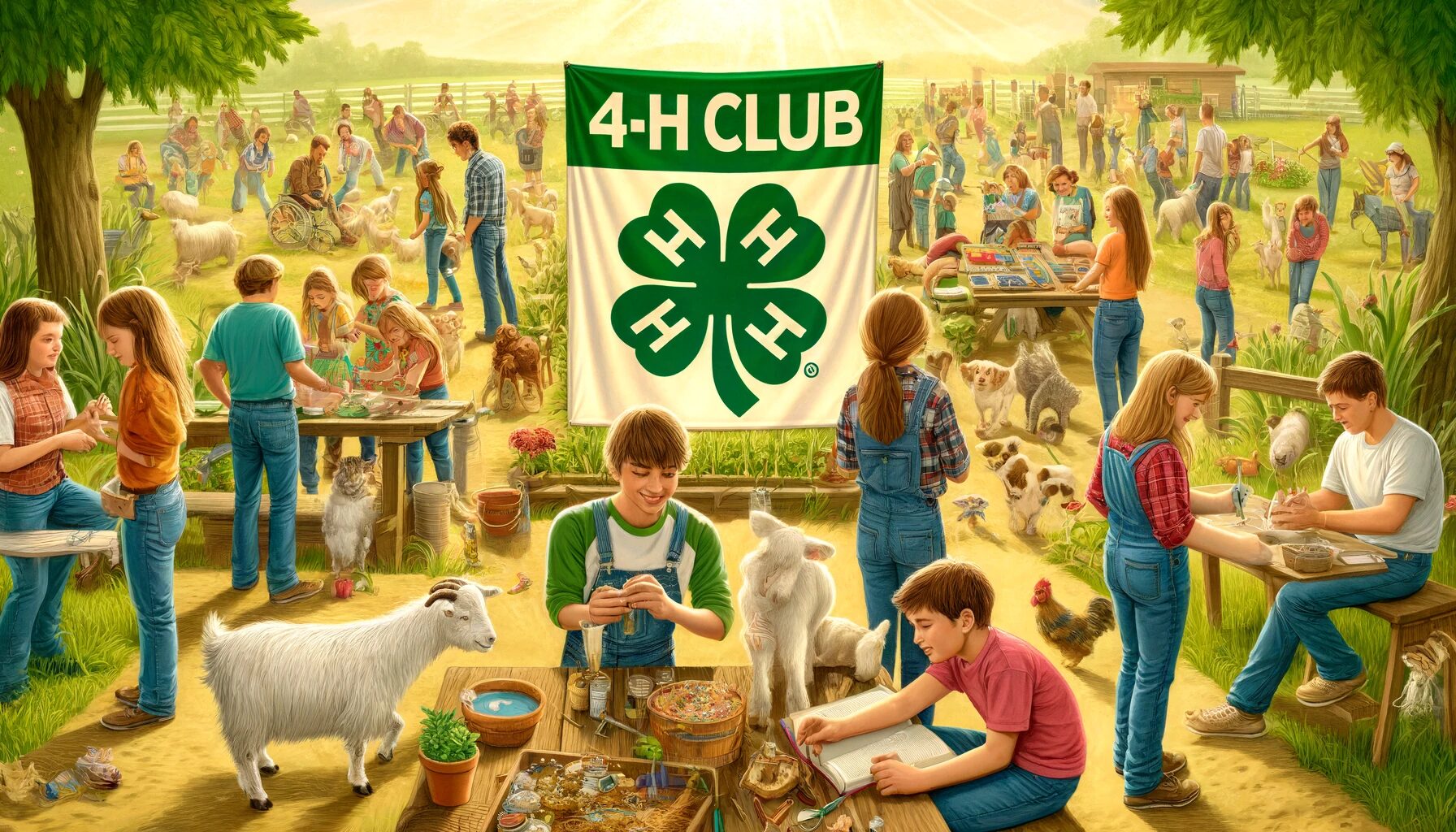4-H, a youth development organization founded in the early 20th century, has profoundly impacted communities across America. With its core principles of Head, Heart, Hands, and Health, 4-H aims to equip young people with the skills they need for lifelong success. This article explores the essence of 4-H, highlighting local stories and community support that underscore the organization’s invaluable role.
A Legacy of Growth and Learning
Originally established to educate rural youth in agricultural techniques, 4-H has since expanded to include a wide range of activities and projects. From livestock raising to robotics, the program offers diverse opportunities for young individuals to discover their passions and develop essential life skills.
4-H’s hands-on learning approach engages youth in practical, real-world experiences. Through various projects, members learn by doing, fostering a deeper understanding and retention of skills.
Personal Stories from the Heart of the Community
In the small town of Maplewood, the annual 4-H fair is a highly anticipated event. The community gathers to celebrate the achievements of its young members, creating a lively atmosphere filled with excitement. Children and teenagers proudly showcase their projects, ranging from well-groomed livestock to innovative science experiments.
SaSince age nine, rah Thompson, a 15-year-old 4-H member, began her journey with a simple gardening project. Over the years, she has expanded her interests to include environmental science and sustainable farming. Her hydroponic gardening project won her a blue ribbon at the state fair and inspired her school to implement a similar system in their greenhouse. “4-H has given me the confidence to pursue my interests and the platform to share them with my community,” Sarah shares.
Similarly, 17-year-old Jake Miller from a neighboring town found his passion for engineering through 4-H. Participating in a robotics club, Jake learned to build and program robots, leading his team to compete in national competitions and earn accolades. “The skills I’ve gained through 4-H have set me on a path towards a career in engineering,” Jake explains. “It’s more than just a club; it’s a community that supports and believes in you.”
Community Support: The Backbone of 4-H
4-H’s success is closely tied to the unwavering support from the community. Local businesses, schools, and volunteers are crucial in sustaining and enriching 4-H programs. Maplewood’s annual fair, for example, wouldn’t be possible without generous contributions from local sponsors like Johnson’s Feed Store and Maplewood Bank. These businesses provide financial support and actively participate in events, offering workshops and mentoring youth.
Mary and Tom Harris, long-time residents and dedicated 4-H volunteers, have significantly impacted their community. They have been organizing the livestock exhibitions at the fair for over a decade. Their farm serves as a training ground for young 4-H members who learn animal husbandry under their guidance. “Watching these kids grow and develop their skills year after year is incredibly rewarding,” Tom says. “4-H is about building a better future, and we’re proud to be a part of that journey.”
The Impact of 4-H: Beyond the Fairgrounds
While the fair is a highlight, 4-H’s influence extends beyond these events. The skills and values instilled in members impact their personal and professional lives. Studies have shown that 4-H members are more likely to pursue higher education and are better equipped with leadership and communication skills than their peers.
Moreover, 4-H fosters a sense of civic responsibility and community engagement. Many alums continue to give back to their communities, perpetuating the cycle of support and growth. For instance, Emily Davis, a former 4-H member and now a successful veterinarian, regularly returns to her hometown to conduct animal care workshops for current 4-H members. “4-H taught me the importance of giving back,” Emily notes. “It’s a way to honor the support I received and to inspire the next generation.”
Looking Ahead: The Future of 4-H
As we look to the future, 4-H remains committed to evolving and addressing the emerging needs of youth and communities. With initiatives focused on STEM education, health and wellness, and civic engagement, 4-H continues to prepare young people to navigate and succeed in an ever-changing world.
In Maplewood and countless other towns nationwide, 4-H stands as a beacon of hope and opportunity. Its enduring legacy is a testament to the power of community, the importance of education, and the potential within every young person.
4-H is not just about growing crops or raising animals; it’s about developing leaders, fostering innovation, and building strong, resilient communities. The stories of Sarah, Jake, and countless others are a testament to the transformative power of 4-H—a power that continues to shape the future, one project (Spark) at a time.
Useful Resources
To learn more about 4-H and find resources in your area, check out the following links:
- Explore the national 4-H organization, its programs, and resources for youth and volunteers.
National Institute of Food and Agriculture (NIFA) 4-H
- Discover the federal support behind 4-H and its impact on youth development.
- Learn about 4-H’s science, technology, engineering, and mathematics initiatives.
- Locate 4-H programs and clubs in your community.
- Access resources for current and prospective 4-H volunteers.
- Read stories and testimonials from 4-H members across the country.
These resources provide valuable information for anyone interested in joining, volunteering, or supporting 4-H and its mission to develop the next generation of leaders.
•

Leave a Reply
You must be logged in to post a comment.